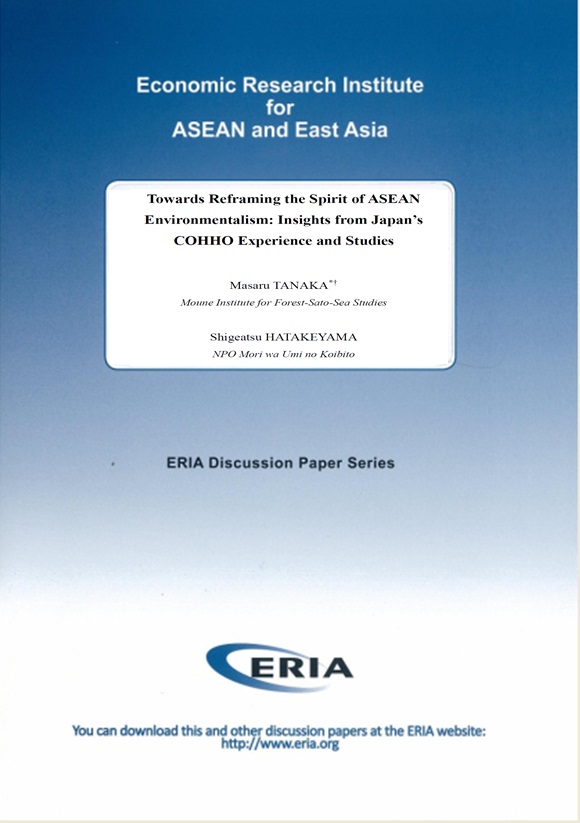Towards Reframing the Spirit of ASEAN Environmentalism: Insights from Japan's COHHO Experience and Studies

Date:
24 February 2016Category:
ASEAN, Environment and Climate ChangeType:
Discussion PapersTags:
EnvironmentPrint Article:
Japan has managed to keep 67 percent of its forest area over the last half century. However, fishermen and the scientific community noticed a gradual breakdown in the fundamentally important ecological link between its forests and surrounding seas. In response, the Kyoto University established the Field Science Education and Research Center, which initiated the Forest-Sato-Sea studies on the interdependence of forest and sea ecosystems. Simultaneously, a grassroots movement of coastal fishermen--'The Sea is Longing for the Forest'--had started to develop. With heightened awareness of environmental problems resulting from the massive earthquake, tsunami, and nuclear accident of 2011, the movement and the people behind the studies have closely collaborated, convinced that fundamental solutions to environmental problems will require environmental education for the next generation--one rooted in real-life experiences. Such experiences can be gained by studying and working to restore the interdependence among forests, seas, rivers, and wetland habitats that connect them. To this end, it is hoped that an ASEAN Center for Forest/Sea Studies will be established, affirming ASEAN's commitment to collaboratively creating a sustainable future by balancing economic prosperity with environment conservation.




